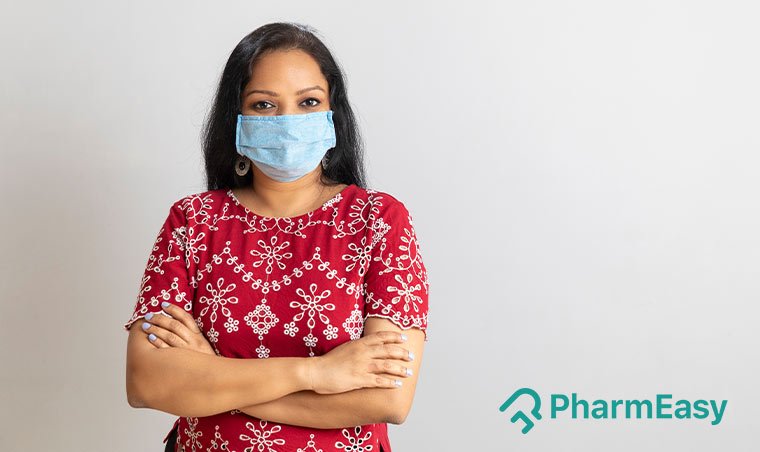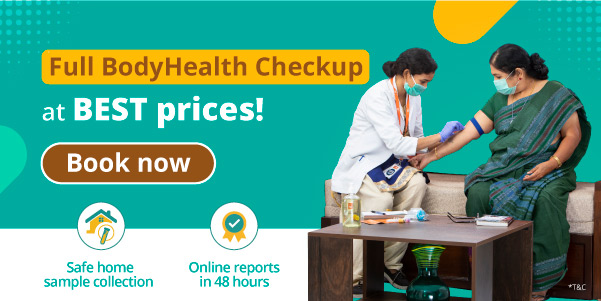The Latest COVID-19 News That You Must Know!
By Dr. Nikita Toshi +2 more

Get,

to manage your symptom
Get your,


4 Cr+ families
benefitted

OTP sent to 9988776655



You’ve successfully subscribed to receive
doctor-approved tips on
Whatsapp

Get ready to feel your best.

Hi There,



Register to Avail the Offer
Send OTPBy continuing, you agree with our Privacy Policy and Terms and Conditions

Hi There,

Trusted by 4 crore+ families

OTP sent to 9988776655



You have unlocked 25% off on medicines




Code: NU25

By Dr. Nikita Toshi +2 more
The steadily rising numbers of COVID-19 cases throughout the country has become a cause of concern for the Ministry of Health and Family Welfare. Although this rise in daily cases has not been consistent throughout the country, certain states like Maharashtra, Punjab, Gujarat, Madhya Pradesh, Kerala and Karnataka have experienced a massive spike in numbers.

This has forced these state governments to resume strict COVID-19 protocols and preventive measures. Along with placing increased restrictions on gatherings in public places like shopping malls and parks, these states have also enforced the Test-Track-Treat Protocol to help flatten the curve once again.
Table of Contents
The renewed surge in COVID-19 cases in several Indian states has resulted in the reinforcement of the Test-Track-Treat Protocol that can help curb the rapid spread of the virus. The need for the Test-Track-Treat Protocol has become even more significant and observing strategies for demarcating containment zones has also become necessary at the micro-level.
Along with the Test-Track-Treat Protocol, state governments have also marked public places as the main cause of the rapid spread of the virus.
The Delhi government has reported a total of 6,49,973 active cases of COVID-19 as of 24th March 2021. This resulted in the Delhi government placing malls, cinema halls, indoor auditoriums and metro stations under the tags of ‘Super Spreader Zones’. The government of Delhi also declared that massive randomized testing for the virus is to be conducted in these zones to identify active cases and quarantine them for treatment. Law enforcement authorities in Delhi have also been instructed to prevent public gatherings during the upcoming festivals of Holi, Shab-e-Baraat and Navratri.
Since the beginning of 2021, the country has not recorded such a rise in the number of cases as has been recorded in the last few days, indicating an unprecedented spike in the spread of the virus. As a result, these 5 states have placed a ban on public gatherings during festivals like Holi:
In the wake of such an alarming rate of increase in infected cases, amping up the vaccination drive has become one of many solutions. Union Minister Prakash Javadekar has urged all Indians above the age of 45 years to get vaccinated with the COVID-19 vaccine regardless of comorbidities since it is an effective preventive measure.
With the multi-pronged approach of the Indian Government with regards to increasing the intensity of the ongoing vaccination drives and placing strict restrictions in containment zones, there is hope for the country to return to normal. Placing bans on public gatherings may seem extreme even in 2021 but measures like these are a necessary evil needed to fight for the greater good.
Also Read: COVID-19 Cases Less Than Three Lakhs After A Month In India
Are you aware of your current health status?

Disclaimer: The information provided here is for educational/awareness purposes only and is not intended to be a substitute for medical treatment by a healthcare professional and should not be relied upon to diagnose or treat any medical condition. The reader should consult a registered medical practitioner to determine the appropriateness of the information and before consuming any medication. PharmEasy does not provide any guarantee or warranty (express or implied) regarding the accuracy, adequacy, completeness, legality, reliability or usefulness of the information; and disclaims any liability arising thereof.
Links and product recommendations in the information provided here are advertisements of third-party products available on the website. PharmEasy does not make any representation on the accuracy or suitability of such products/services. Advertisements do not influence the editorial decisions or content. The information in this blog is subject to change without notice. The authors and administrators reserve the right to modify, add, or remove content without notification. It is your responsibility to review this disclaimer regularly for any changes.

Leave your comment...
Comments